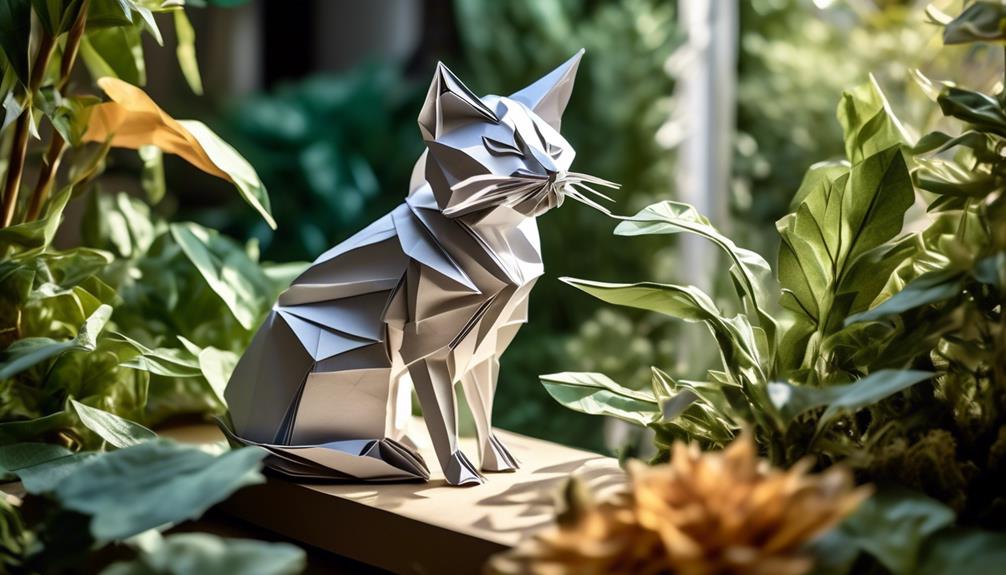Over 20% of domestic cats are seniors, living into their teens and twenties. As they age, you may notice they nap more and may hesitate before jumping. Their aging bodies require different nutrition.
Vitamins are crucial for maintaining health, but as cats age, their digestive system may not absorb enough nutrients from their diet. Adding vitamins to their daily routine can improve their health and enhance the quality time you spend together. However, it’s important to consult with a professional before starting any supplements, as every cat has different needs.
Let’s look into how the correct vitamins can significantly improve the health and comfort of your cat, especially in their older years.
Key Takeaways
- Senior cats have specific nutritional needs that should be addressed.
- Vitamin supplementation can improve overall well-being and immune health in senior cats.
- Choosing the right senior cat food can help prevent obesity.
- Omega-3 and omega-6 fatty acids are essential for skin, coat, and joint health in senior cats.
Understanding Age-Related Changes
Older cats may not need significantly different nutrients compared to when they were younger, but their diets can be adjusted to help with specific health issues they face as they age. As owners, it’s important to take care of our aging cats by understanding their needs and making sure their diet includes essential amino acids, the correct balance of fatty acids, and extra care.
Encouraging water intake is vital because senior cats aren’t as inclined to drink. This means providing wet food and placing water in multiple locations. Dental health, too, requires your careful attention. Regular check-ups and specific care can prevent discomfort and complications. You’re their guardian, after all.
To manage their weight, it’s important to control portion sizes and pick the right senior cat food to avoid obesity, which is a frequent issue. Although supplements such as a Senior Multivitamin for Cats can provide extra help, consulting a veterinarian is essential to make sure all actions contribute to a cat’s health and happiness in their later years.
Key Vitamins for Senior Cats
To ensure your senior cat’s health remains robust, it’s important to focus on key vitamins that support their aging bodies. As your cat enters their golden years, they may need more than just senior cat food; they need a targeted blend of vitamins and minerals. Considering supplements for senior cats can make a significant difference in maintaining their vitality.
Certain vitamins are particularly beneficial for aging felines. For instance, vitamin E is a powerful antioxidant that supports immune function, while beta-carotene helps keep their eyes sharp and also bolsters the immune system. The balance of Omega 3 and 6 fatty acids is essential for a shiny coat, supple skin, and joint health—key elements for your cat’s comfort and mobility.
Here’s a gentle guide to some core nutritional supplements that can support your senior cat’s health:
| Key Vitamins for Senior Cats | Benefits |
|---|---|
| Vitamin E | Antioxidant, immune support |
| Beta-carotene | Eye health, immune support |
| Omega 3 and 6 fatty acids | Skin, coat, and joint health |
| Prebiotics and Lysine | Digestive and immune support |
Products like Nu Cat Senior Multivitamin are formulated to provide these essential nutrients. When choosing cat supplements, look for those that cater to the unique needs of senior cats. Remember, a little extra care with the right cat multivitamin can go a long way.
Benefits of Vitamin Supplementation
Adding vitamins to your older cat’s diet can greatly improve their health and immunity, helping them stay healthy as they age. Older cats might not get all the nutrients they need from their regular food, so extra vitamins can help fill those nutritional gaps.
Supplements can help bridge these gaps, providing a complete diet that supports healthy aging. Key vitamins, such as antioxidants, omega-3 fatty acids, and vitamins A, C, and E, are particularly beneficial. They contribute to maintaining body weight, preserving lean body mass, and promoting brain health, which is vital for older cats whose cognitive functions may begin to decline.
A Supplement for Cats can also be a loving gesture of care, offering them a chance at improved health and potentially greater longevity. It’s about more than just filling a bowl; it’s about ensuring their golden years are as golden as can be.
Addressing Common Deficiencies
Understanding the myriad benefits of vitamin supplementation for your aging cat naturally leads us to consider the specific deficiencies they may face as they grow older. As a devoted caretaker, it’s important to recognize that senior cats have unique nutritional needs that may not be fully met by their diet alone.
Vitamin E is an essential nutrient that provides antioxidant benefits, safeguarding your cat from harmful free radicals and supporting a robust immune function. Beta-carotene, another valuable antioxidant, promotes eye health and further bolsters the immune system. These are often integral components of a quality multivitamin supplement for senior cats.
Omega-3 and omega-6 fatty acids are critical for maintaining a healthy skin and coat, ensuring good joint health, and enhancing overall well-being in your aging cat. These fatty acids are vital in countering the effects of aging.
Prebiotics are also beneficial, supporting the growth of good gut bacteria and aiding in digestion, which can become more sensitive in senior cats. Lysine provides additional immune support benefits, important for maintaining the specific health of your cat as they advance in age.
Understanding and addressing these deficiencies through tailored supplementation can support your senior cat’s health.
Choosing the Right Supplements
To maintain the health of your aging cat, choosing the right supplements is crucial. Here’s a straightforward guide to help you provide the best care.
- Consult with a Veterinarian: Before starting any new supplement, talk with your vet. They can help maintain a balanced diet tailored to your cat’s needs, considering factors like activity level and existing conditions like cats with kidney concerns.
- Read Cat Food Labels: Many cat foods are already formulated for cats at different life stages. Look for senior cat foods that support the immune system and check if they contain essential nutrients such as omega-3 fatty acids.
- Balance the Diet: Aim to provide a diet that includes all necessary nutrients. Fish oil is a great addition to help maintain overall health for joint health and cognitive function.
- Supplement with Care: If your vet recommends supplements, consider those that contain antioxidants, chondroitin sulfate for joint health, and omega-3 fatty acids. Always choose products specifically formulated for cats to ensure safety and efficacy.
Frequently Asked Questions
Should I Give My Senior Cat Vitamins?
You’re wondering if vitamins are necessary for your senior cat. It’s best you consult your vet, as they’ll consider your cat’s unique needs and recommend the right diet or supplements.
Should I Give My Cat Vitamin Supplements?
You should consult your vet before adding vitamin supplements to your cat’s diet, as their needs are unique and improper supplementation could be harmful. Your care for their health truly shows.
What Are the Best Vitamins for Older Cats?
You’ll want to give your older cat vitamins like Vitamin E, omega fatty acids, and prebiotics to support their health. Always consult your vet to tailor supplements to your cat’s needs.
What Is the Best Way to Feed Older Cats?
You’ll want to feed your older cat with love and care, offering wet food or moistened dry kibble to ensure hydration and cater to their changing dietary needs. Always prioritize their comfort.




